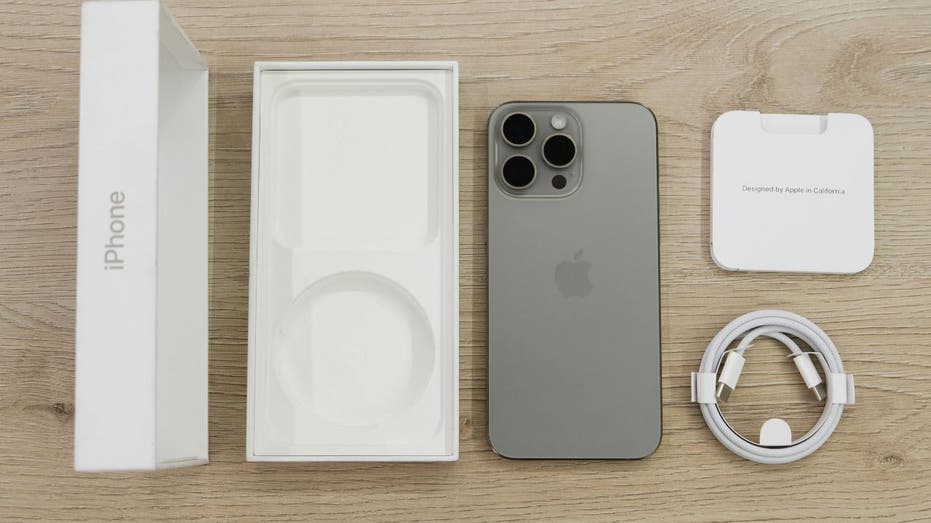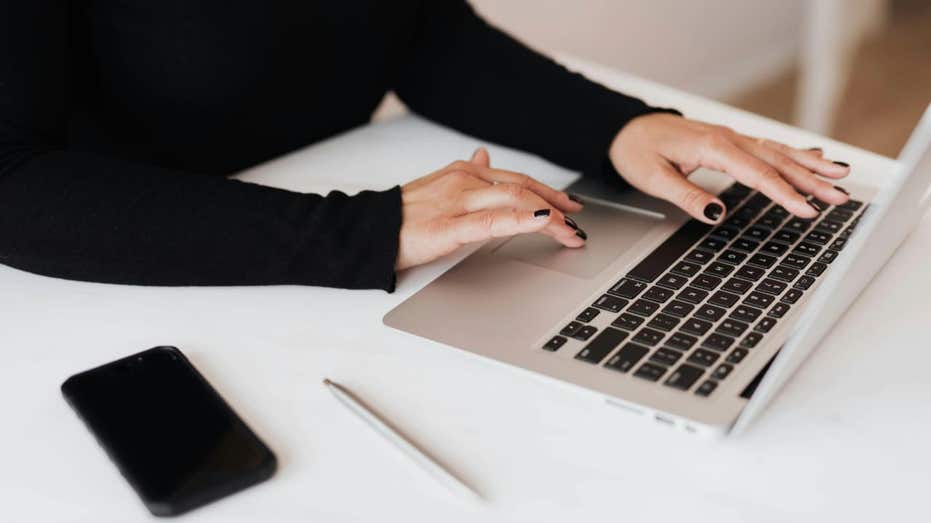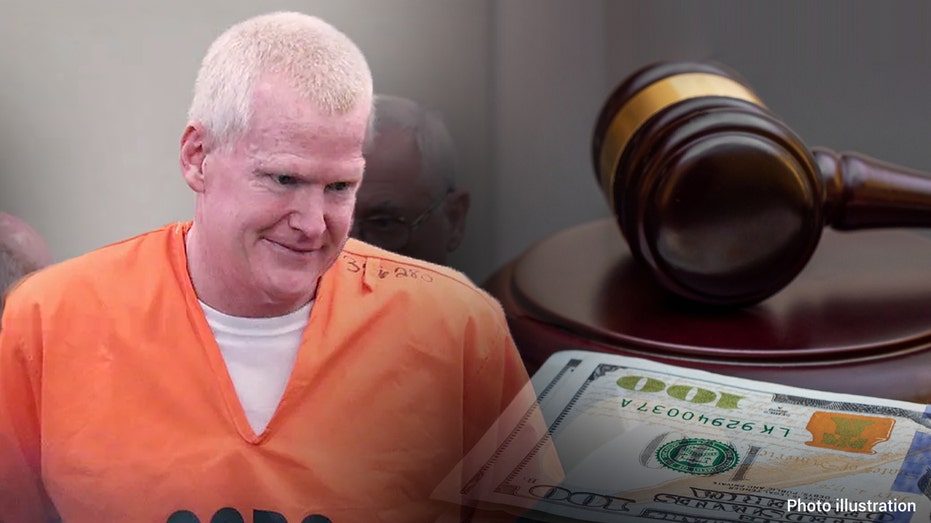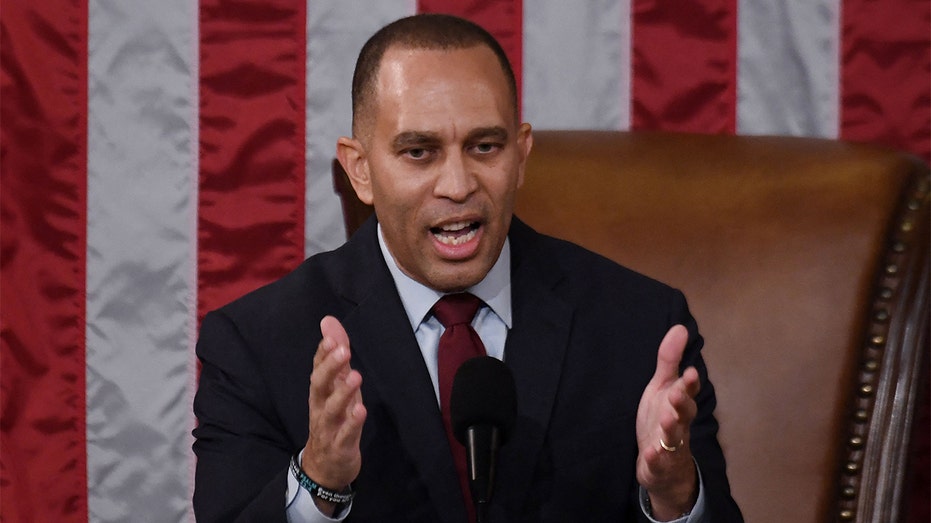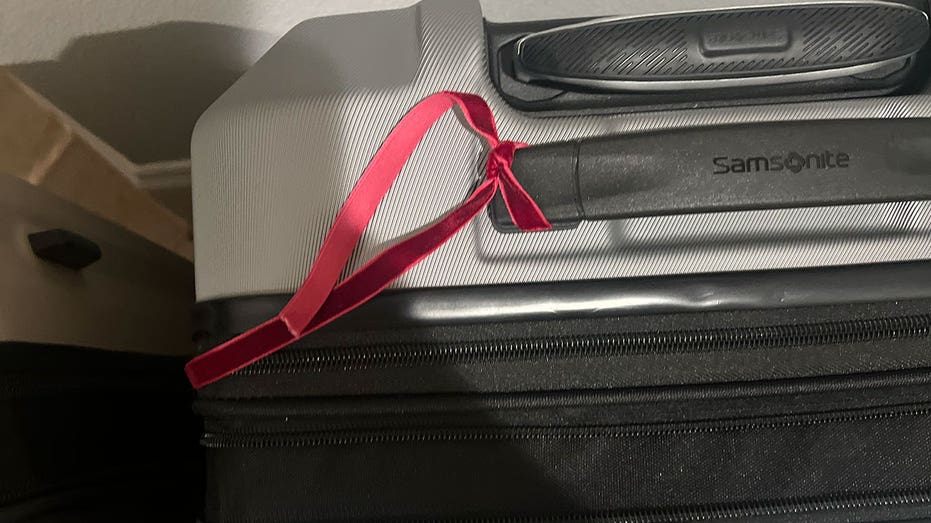- by foxnews
- 15 Jan 2025
How I turned $15,000 into $1.2m during the pandemic - then lost it all
How I turned $15,000 into $1.2m during the pandemic - then lost it all
- by theguardian
- 05 Nov 2022
- in technology
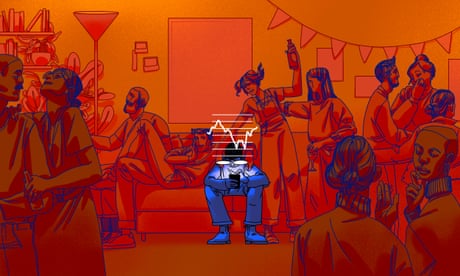
I kept the news in all the way out of the terminal until halfway through the airport parking garage, which was as far as I could hold it. It was the kind of announcement that was too voluminous for the inside of a car, so I blurted it out to my parents in the open air in a half-mumble, half-laugh.
"So, umm, I turned $15,000 into $1.2m in the past year."
They both stopped and looked at me, silent.
"Are you on drugs?" my mom finally asked, anxiety flashing across her face. My dad said nothing. I dispelled her accusation by opening up my investment account on my iPhone and turning the screen towards her to show her the balance.
My dad remained silent, in a way that felt more accusing and harder to confront - as if I had suddenly upended his conception of the world. Both of my parents had taken vows of poverty to each other as part of their wedding vows; their guiding philosophy was to "live simply so that others may simply live". They owned no property because of their choice to be "war tax resisters", and both had consciously dedicated their careers as a legal aid attorney and a Presbyterian minister to low-paying social justice work at the detriment of material possessions and substantial retirement accounts.
But if his worry was that he didn't know how to relate to a son who was now rich, then he needn't have. Not about the money anyway, because within four weeks, the bulk of it was gone. In the span of a year, the numbers came, danced, disappeared.
What took longer was un-becoming the asshole they almost made me.
Millennials, born between 1981 and 1996, have spent their entire adult lives in a financial paradox. Despite cascading crises, right now is the most materially comfortable moment in human history. Climate change threatens to render all of this moot, but on a pure quality of life measure, we collectively enjoy better health outcomes, longer lives, more education, more individual freedoms and more geographic mobility than anyone before us.
Though there is inequality shot through this, it does not merely describe the rich world experience: the percentage of people living in extreme poverty has plummeted as developing countries have converged on their wealthy neighbors. For the average person in the world, there has never been a preceding era when it has been better to be alive.
And yet, relative to our boomer parents, the millennial financial reality and future is objectively more precarious and less optimistic. The most educated and diverse generation in the US also has the highest debt-to-income ratio and has earned on average 20% less than boomers had at the same age. At the same time, the cost of housing has far outpaced both inflation and incomes. Nearly half of millennials and Gen Z report that they live paycheck to paycheck and worry about covering their expenses, and 30% of millennials are worried they won't ever be able to retire.
When Robinhood launched its gamified stock and options trading app in 2015, and rose to popular prominence over the next few years, this is who it targeted: a generation financially on the fritz, with enough disposable cash for avocado toast but not enough for mortgages. Of its 21 million users, the average age is 31, and half are first-time investors. And by March 2020, the financial world was threatening to collapse on them for the second time in a decade. If there was ever a time to yolo, wouldn't this be it?
In the stock market, it takes money to make money. So what do you do when you don't have very much to begin with? You pour what little you have into overly leveraged, rarely brilliant, sometimes inane trades that lie somewhere in between gambling and investing.
Call it the millennial desperation capitalism of r/wallstreetbets, where I ended in February 2020, just before Covid crashed the world.
As country after country naively clung to the idea that borders meant something to a virus, my first move was to take out a loan. My social justice oriented, middle-class parents may have eschewed material wealth, but they gave me one significant privilege: dedicated contributions to a college savings plan throughout my entire childhood, which meant that I finished both undergrad in the US and graduate school in London and Paris, where I still live, completely debt-free.
I remembered the 2008-09 financial crisis, and thought about the surging wave of sheer unknown that was about to crest and pull us all into its swell. Money could only be a buoy in the ocean, an inflatable vest, soft sand to stumble on to.
I decided to bet on cruise ships - after all, what could be more exposed to travel shutdowns and fears about a global virus? Making money on the way down seemed morally dubious, but on the other hand, making money on the sinking of the cruise industry - environmentally noxious, labor exploitative, tax evading and generally tacky - seemed to reset the moral balance to neutral. So I took the newly acquired loan, which roughly doubled the size of my meager life savings, and started buying "puts" - that is, purchasing the option to buy or sell shares of a stock at a predetermined price - on cruise lines.
During lockdown, the Reddit forum WallStreetBets became my personal finance journal, catharsis and source of entertainment. It was a digital hootenanny of memes, jokes, outrageous "all in" moves, stunning "gains porn", scary "loss porn", promises to quit jobs and stick it to the boss if things went well, and yes, even a re-worded sea shanty, fine-tuned to the forum's specific lingo. Like any subculture, it came with its own linguistics (some of it, yes, sexist and homophobic, even if it claimed the cover of irony), mythology and reference points. "This is the way," someone would post in approval of an obviously good, or outrageously irresponsible idea, prompting a nested series of
This is the way
This is the way
This is the way
This is the way
This is the way
from other posters.
Sir, this is a Wendy's, someone else might write when an idea for a trade was too mundane or too mainstream. Fuck it, I'm in, exuded the desperation capitalism sentiment that ruled over the board; "tendies" were gains (referencing both chicken tenders and $10 bills - testament to the fact that so many on the board were playing with such small pots of money); literally can't go tits up was the sarcasm-infused reply to ideas that were a priori quite stupid, but contained big potential.
Among the now millions of members - mostly male, educated and between 18 and 35 according to Jaime Rogozinski, who founded WallStreetBets in 2012 - some have become legend and lore in their own right: in 2019 the user u/ControlTheNarrative discovered a glitch in Robinhood's margin loan functionality dubbed the "infinite money cheat code" that u/MoonYachts later says they used to leverage $4,000 into $1m worth of stock and options positions; u/TheEmperorOfJenks confused everyone about whether he was serious, or simply gaslighting, when he detailed his intention to buy "ornamental gourd futures" (tl;dr he allegedly lost everything and then some); and of course the most infamous of all, u/DeepFuckingValue, who set the market aflame when he pointed out that GameStop stock was so over-shorted that it would result in the mother of all short squeezes.
In between the memes and nodes of internet culture, there was an illusion of control. The global situation was overwhelming, and the market might have been full of day-to-day movements that I could not influence, but I had grabbed my money with both hands and was making choices with it. Choices that had clear and immediate results - just like the impact of Covid on Paris.
In the spring, the city opened up in stages. The sometimes seductive, sometimes awkward bise had disappeared, along with the tourists. Paris had lost one intimacy, but gained another: in the sudden emptiness of one of the world's most visited cities, people seemed to smile more, chat more and American-accented French mattered less. You were there, you had been locked down too, there was no need to prove that you were no visitor in the churn of millions, you simply belonged.
The cruise industry was devastated; my portfolio was rejoicing.
The balance at the end of May 2020: $101,075.61
During the summer, my portfolio plateaued. I had missed the rebound, and was filled with uncertainty about whether it would continue, or reverse. Uncertainty meant fear, and fear meant that I froze.
What brought me back to trading was a large dose of jealousy. A good friend's ex had stock options from his former startup and an atypical Parisian apartment with floor-to-ceiling windows and a rooftop terrace. He threw giant, wacky parties to which he would continue to extend invitations to all my friend's closest friends after their breakup - even though she was clearly unwelcome.
On the Fourth of July, I stood on his terrace, where a pig was roasting on a spit, and had the most American reaction to the jealousy I was experiencing. Why shouldn't I have the same things he does? And the way there seemed clear: back to options trading, only calls this time around. Bigger, better and bolder even than the cruise puts. A few weeks later, I channeled the inner voice of the millions of "degenerates" on Reddit. This literally can't go tits up. I grabbed my phone, opened my brokerage account and spread a third of my net worth into something I could feel intensely good about rooting for - calls on alternative energy stocks.
At a certain income level, there are diminishing returns to happiness for each extra dollar (it's estimated the change point is $75,000 in the US). But until one reaches this number, money can increase happiness by eliminating financial anxiety, providing access to health and leisure and offering increased control over how we spend our time.
Looking back, during early autumn of 2020, I floated buoyantly at this equilibrium point. I should have been happy: I had just celebrated my 30th birthday on the banks of the Seine; I had enough savings to feel financially secure as a relatively unknown writer and unencumbered time to spend working on a recently begun novel; I had newly discovered cycling and scuba diving; I had a global capital's worth of concerts, performances, exhibits and restaurants to go to, the Mediterranean and Atlantic coasts were just three hours away by train, and most importantly, I had close friends to go to all of it with.
That fall, I had started dating someone who loved cinema, was serious about nurturing the creative parts of her soul and twirled fire sticks. She also happened to be the daughter of a hedge fund billionaire ("depending on the currency", she had once joked), but seemed to genuinely prefer spending Covid lockdown 2.0 nights at my cramped, simple apartment - 40 sq meters (roughly 430 sq ft) - that I shared with a housemate.
"Look at this 1,000% return," I said to her when the alternative energy stocks began to soar right around the US presidential election. "Tell your dad he can call me for ideas," I bragged, though inside, I half-jokingly wondered if sheer physical proximity to wealth was producing some sort of financial osmosis. She shrugged the comment away, unimpressed, preferring to redirect our conversation to Neil Gaiman's Neverwhere.
By December, my once meager portfolio was worth $250,000 and I had branched out into all sorts of speculative and risky investments, going all in on the exhilarating combination of leverage plus risk. You should sell out, a college friend who had also jumped into the market texted me. But I felt competitive and infallible. I'll race you to a million, I wrote back. After reaching this goal, I told myself, I would diversify and buy shares in stable, legitimate companies.
I went to bed at night eyes buzzing with blue light from endlessly refreshing my investment account, or scrolling through new Reddit threads, or reading analysis on any number of the two dozen stocks and options I now had positions in, and I woke up to the same thing.
But I hadn't made progress on the novel I was writing in months, and my friends were beginning to notice a shift in the way I talked and the things that occupied my life. "It seems like your mood is really dependent on what the market does day to day," one friend told me. "Hate to break it to you but, yep, you sound like a finance bro," said another.
On top of that, I was half-present with my girlfriend, more focused on wanting what she came from - money - than on learning about her inner life. Unsurprisingly, the relationship ended before the year did.
I spent a day in bed, replaying various moments when I could have said or done something different, wrote unpublishable breakup poetry and then doubled down on the options trading. I just want to 10x the year, I texted a childhood friend.
A few days after Christmas, I did. And once my portfolio crossed $300,000, I began to experience firsthand the thrilling reality of how money begets money.
The balance at the end of December 2020: $297,084.70
By early January I was sitting on just over $500,000, a once unfathomable sum, but which at this point felt like just numbers on a screen, points to score in the most exhilarating video game I had ever played.
You should take another look at GameStop, my friend texted me. I had pooh-poohed the idea back in October, preferring the "sure thing" that was alternative energy, but money had stopped meaning as much and I had spare cash to burn. I love a good short squeeze, fuck it, I'm in, I texted back. I went to my investment account and dropped $30,000 on calls - the equivalent of my entire previous year's income.
What had started out as investing had become little more than pure gambling on things I fundamentally cared little about. But GameStop went up, and so I dumped $20,000 more into the "yolo".
The next day, the short squeeze began in earnest: GameStop briefly touched the upper $70s, and then dropped back down to the $40s. Was that the squeeze? My childhood friend and I wondered to each other. Had we missed the sell point? Over the weekend I watched the Lord of the Rings trilogy and looked at expensive real estate. My portfolio was somewhere around $900,000. I was ready for the show.
When the real squeeze began, my portfolio opened at $1.2m, and began jumping faster than I had ever experienced. Within an hour it went to $1.3m, then $1.5m, then $1.6m. I thought about selling, but didn't. I was in a state of total euphoria.
By that afternoon, my portfolio value had dropped back to $1.1m. I had gained an extraordinary amount of money, but my mind was consumed by the half a million I had missed out on by not selling. You idiot, I thought to myself, you waited too long, you should have sold. I sold the calls.
Two days later, GameStop jumped again, almost touching $400 per share, and instead of rejoicing, I made mental calculations on what I had missed by selling too soon. $2.5m, my mind said. You moron, you sold too soon, why are you so stupid, you missed out on $2.5m.
I was beginning to experience what Alexander Blaszczynski, a psychology professor at the University of Sydney and specialist in treating gambling addiction, calls a shift in the "cognitive schema".
I was now wealthy, financially secure for decades at least, and if I had invested wisely and carefully into safe, dividend-yielding assets that I could borrow against to buy a place to live, I could most likely have financed a modest, middle-class lifestyle indefinitely. It could have been a perpetual writing grant to myself.
Instead, I became more frantic than I had ever been when I had far less.
It wasn't hard to rationalize it. After all, my Amherst classmates had grown up going to vacation homes and boarding schools, and were destined to inherit large transfers of property or investment wealth. I would not; instead, I felt the impending burden of my parents' underfunded retirement accounts looming.
My plans were fairly simple: I would buy a small house for my parents to retire in, somewhere on the coast of Portugal or Spain, and donate to the NGO that I had worked with in southern Chad. I would put $100,000 into an account and send debit cards to my five closest friends to use for random acts of kindness, or emergencies - no questions asked.
I wanted an apartment with enough space to animate the kind of community I wanted to surround myself with, a monthly gathering of artists, writers, musicians and other kinds of quirky thinkers to share what we were working on and encourage each other. And I wanted a large enough pot of money left over to live off, enough to buy myself time to finish the half-begun novel, to put words out into the world that might make someone, somewhere, feel a frisson crackle along their spine.
Greed, as they say, is a hell of a drug - or perhaps just a disease. It is a chimera, a destroyer of dreams. The idea of enough consistently resets itself in adjustment to whatever it is that you currently possess, lingering forever just over the horizon.
The balance on 31 January 2021: $1,223,473.49
In his poem The Palace, Kaveh Akbar writes,
To be an American is to be a scholar of opportunity.
Opportunity costs.
By the time I arrived in Cleveland, Ohio, to see my newly vaccinated parents, having opted for the upgrade to Air France business class, I had stopped thinking about money in terms of its actual present value, and instead conceptualized the numbers on my screen in terms of their abstract potential future value.
During the flight, I sipped champagne, I lay down flat and napped, and I gazed into the screen of my phone, repeating the number to myself: $1,223,507.39. And in my mind, every dollar was at least $2-3, or maybe even $10, in future potential gains.
My dad needed a new van to transport his homeless parishioners from the downtown shelter to his church. Writing a $25,000 cheque meant absolutely nothing in the short term; it was a mere rounding error on $1.2m. And yet, I didn't pull the trigger. Why spend $25,000 on a van now, when in six months that same $25,000 might be worth $250,000? I thought. Why rob my dad's church of a potentially capacity-altering sum of money in exchange for getting a new van just six months sooner?
So I pulled nothing out. What I had sold for large gains, I reinvested in high-risk, overvalued, stupid things - sticking with highly volatile call options instead of shares, including on the fund that was set to provide a backdoor IPO for Lucid, the electric auto maker that had Tesla in its sights. I was being foolish, I knew, but surely there was a bigger fool than me to sell to before the wave broke?
Minutes before the undertow took me, I was in church, having accompanied my parents to Wednesday evening mass. The deacon, who I knew as a retired mailman and host of a large neighborhood block party every Harvest Moon, included a prayer for "all those who attach too much importance to material wealth", and I was hit with a premonition: I was going to lose everything.
As I walked down the stone steps of the Irish Catholic church that I had grown up attending, I checked my phone: the merger details had been announced, and the valuation accorded to Lucid was high, far too high. Shares were cratering, and it was the pinprick in the bubble for the other high-growth tech and alternative energy stocks, which followed it downwards, their call options losing value at an exponentially greater rate.
That night I barely slept, and in the morning I sold out what I could at enormous losses. My body jittered. I screamed into my pillow. I stared at a screen of red. I left my parents' apartment, walked to the lakefront park, laid down in the February snow and willed myself to become as cold as the Cleveland air, trying to numb my emotional distress with sheer physical discomfort.
At dinner, I was once again incapable of holding it in. "How much do you have left?" my mom asked. "$700,000", I said through clenched teeth. My parents' faces brightened in a way they hadn't when I had announced the initial riches to them, as if this sub-million-dollar number was somehow more comprehensible than $1.2m had been. "That's great!" they exclaimed. I couldn't eat. My head was a cruise ship of anxious passengers, my gut a night diver with a broken light. How could they not understand the depths of what it meant to lose half a million dollars in a day?
Nothing about this was "great". Everything was going to shit. Even Charles Schwab agreed.
So I began to chase. I had done it once, I could do it again, I told myself. My decisions became driven by anxiety, fear, desperation and drunken optimism. Fuck being moral, I thought in anger at the universe, I just wanted my money back, and so I threw what was left at any impulse I had. None of it worked; the market pullback destroyed my calls, and on the days I bought puts, the market rallied.
Options on alternative energy and electric vehicle stocks - which represented almost the entirety of my portfolio - had crashed from their bubble territory. $700k became $500k, which ebbed down to $400k, then $300k. At $250k, I cursed myself for being such a fool. I spent hours gazing at the apartments I could have easily afforded just two months ago. I was an opportunity ruiner, a serial one.
I looked at my portfolio and felt sudden shame - it contained calls on Total. I was trying to recoup my losses by making money on an oil company. What was I doing? Maybe I deserved this unhappiness, as punishment for wasting such a gift, I thought.
I sold what hadn't expired and dumped what was left - a quarter of a million dollars - into the shares of a Cleveland-based biotech whose research I had read years before after meeting a lead scientist at an alumni event, on the off chance that their clinical trial would be successful and that I could, in one fell swoop, get "back" what I had "lost".
This too, slowly dribbled away over the next 12 months.
Here's Alexander Blaszczynski again on the psychology of the gambler: "As losses generally continue to outweigh wins/returns, new thresholds are set ('I will continue until I regain at least $1.5m and then stop')," he wrote to me, without knowing anything specific about my situation.
"This process continues until the individual has reached a point where they have lost the bulk of their winnings, become regretful and despondent and decide that they have already lost so much, they may as well continue in a self-destructive mode coupled with a vain hope that they might be lucky and start winning again. The futile fallacy and almost delusional belief that 'Stock-trading and gambling led me to this situation, stock-trading and gambling will allow me to recover.'"
Of course, there are others who made and lost during the "meme stock" craze. From his perch as an observer, Rogozinski told me that he far prefers the r/wallstreetbets posts that detail painful losses. Posts of big gains give people the impression that they can do it too, he clarified to me over video chat, whereas posts of painful losses seem to increase the risk-averseness of the average WSB-er, leading to lower "community losses" - at least, for a time.
In my own unimaginable financial folly, I had inhabited several distinct psychological pathologies: greed, which obscured what was there in favor of the ever-present more that might be, and the desperate attempt to regain what was lost, which obscured what might still be.
In the end, I spent almost none of the money on myself, or on anyone else.
Things I did buy: a new MacBook Air to replace my ageing 2014 model, an iPhone 12, one business class upgrade on a flight from Paris to Cleveland and a subsequent year's worth of talking it all over with a therapist.
"Write about it," the therapist initially advised. "It might make a good piece."
Except, for me, writing about something implies a finality, a closure. And I wasn't ready to leave the parallel universe where I made all the money back, or where the money never disappeared, and so I replayed every ill-fated loop in my mind, the same way I couldn't help doing after the end of a relationship.
"You and Brian are in sort of similar spots now, lol," my childhood friend texted me many months later, referencing another childhood friend who was a Marxist and a poet. "You were banking on getting rich, and he was banking on a Communist revolution. Back to earth indeed."
"Except I was rich, and I blew it," I texted back.
"Oof, yeah that part stings a bit more," he replied.
The balance at the end of May 2021: $331,426.00
I lost what remained during a perfect Parisian afternoon. I spent it wandering through the Paris aquarium, on a fifth date with someone who was a tantalizing mix of wild and adventurous, empathetic and sweet. She lived an objectively exciting life - so much so that I was flabbergasted that she could be at all intrigued by me in return.
We sidestepped streams of children to laugh at the bulging eyes of largemouth bass, and held hands as we contemplated the gossamer beauty of bright jellyfish. We drank bubble tea in a nearby park and playfully shot the tapioca balls at each other through our straws.
Somewhere in the back of my mind, I knew that the last components of my once-fortune were evaporating into bits of data in servers in New York, and I didn't care. In that moment, I just knew she seemed to really like me. Not a me cradled in cash, or a me pumped up with the fake confidence of immense financial potential.
How many other moments of radical amazement had I missed, or half-lived, because the back of my mind was stuck on accumulating money? How many times had I walked through the Jardin du Luxembourg, or along the Seine, and only half-appreciated the sculpted beauty around me; how many times over the past two years had I eaten a pain au chocolat without being fully aware of the combination of flavors amid the light, airy, crispy texture of the dough; how many moments of conversation and connection with friends had been dominated by my insatiable desire to get back numbers on a screen?
I wish I could write that the realization I had on the "perfect afternoon" that specific moment changed me forever; if only human beings were so simple. In the weeks that followed, I would indeed dissolve into an anxious mess about the loss of my financial future, about the fact that I now owed the IRS more than twice my net worth on phantom gains that had been realized, reinvested and then lost.
I would try to double down on my new relationship, the one thing that seemed to be going right, but in a way that remained centered on me, on my worries and wants. I moved too fast for something that needed time, ultimately causing it to buckle and break.
But that perfect afternoon is worth returning to in a way that could-have-been trades are not - for the lesson it offers - about patience and presence, gratitude and the world around us, the people who were there before there was ever any money and who are still there when it's gone. And surrounding all of it, the immense possibility of all the things that money can't buy.
The balance at the end of May 2022: $30,828.39
Taxes owed to the IRS: $82,000
Net debt: $51,000
- by foxnews
- descember 09, 2016
Flight passenger shows luggage resembling prop from airport thriller 'Carry-On,' sparking reactions
A social media user posted a photo of a suitcase tied with a ribbon that appeared to remind people of the new action movie "Carry-On," sparking references in the comment section.
read more
